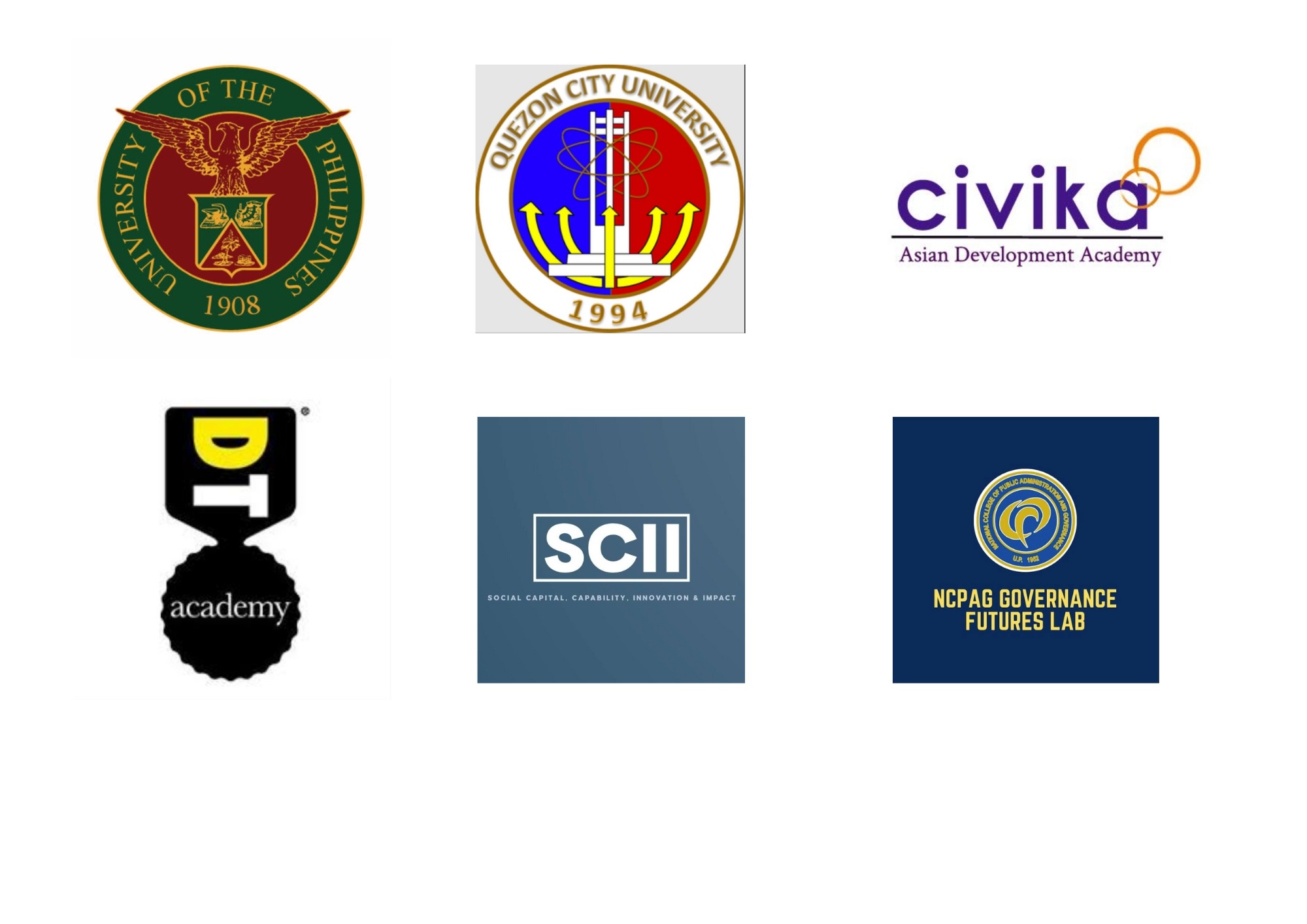Transformative Education for Sustainable Social Impact (TESSI) Institute
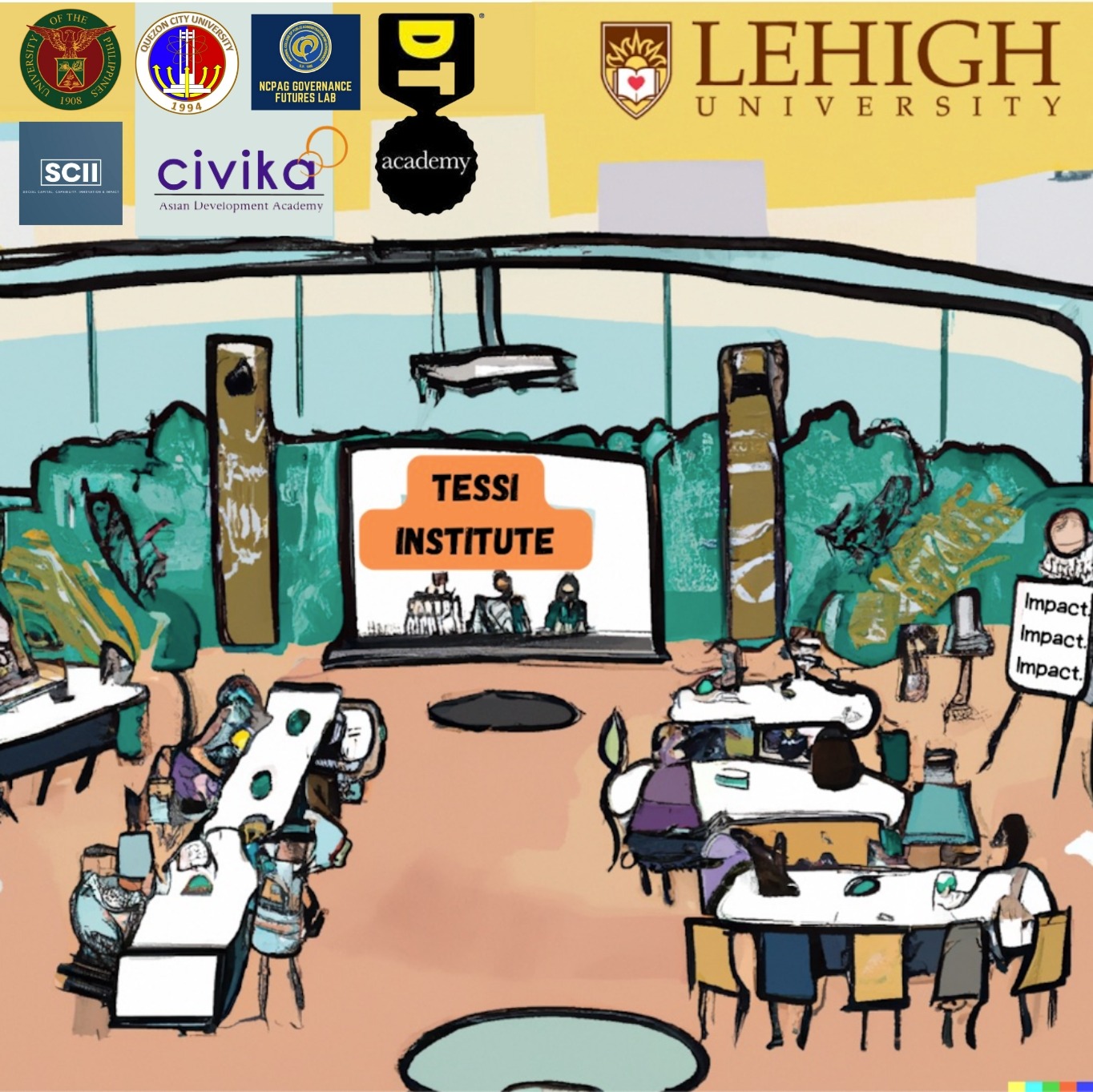
Dates: March 11 - 15, 2024
Location: Assembly Hall, National College of Public Administration, UP Diliman, Quezon City, Philippines
Host: UP Diliman & Quezon City University
Number of Participants: 40. Accepted Candidates will be referred to Civika Knowledge Management Solutions Inc. to complete the registration process
Costs: A fee of P10,000 (approximately $180 USD) will be charged to cover seminar expenses. This fee includes food and snacks but does not cover overnight accommodations.
Partners: Quezon City University, Design Thinkers Academy - Singapore, Civika Asian Development Academy, Social Transformation School, Quezon City Youth Development Office, SCII Network, NCPAG Governance Futures Lab
Expectation: Participants are expected to be completely engaged in the entire week-long workshop and are responsible for their own travel arrangements.
Continuing Education Credits: Available
Program Summary
The Transformative Education for Sustainable Social Impact (TESSI) Institute is a one-week interdisciplinary workshop designed to empower faculty with the expertise and tools needed to reshape their courses and curricula in response to global grand challenges. Rooted in the principles of creative inquiry and the praxis of Humanitarian Engineering and Social Entrepreneurship, the TESSI Institute offers educators an innovative framework for crafting curricula that engages students in authentic, real-world projects, where they co-create innovative, practical, and sustainable solutions that address the needs of vulnerable populations and communities facing social, economic, and environmental challenges.
Workshop attendees will build toolkits for delivering sustainable impact, while preparing their students to identify problems, design solutions, develop business models, and leverage storytelling. This method places students at the center of the knowledge discovery process, using a hands-on, hearts-on approach for students to make meaning based on their lived experiences. Students take radical ownership in their projects, while faculty mentors become partners and co-creators striving to propel their projects forward on the journey towards tangible, sustainable impact. Faculty members will become catalysts for transformative education who foster a new generation of socially conscious engineers, entrepreneurs, and leaders ready to tackle the complex challenges of our time. TESSI is envisioned as a week of inspiration, skill-building and network-building with a deep commitment to driving sustainable social impact through technology education.
Certificates will be given to participants upon completion of this workshop. Participants are expected to deploy the tools and techniques in their universities and will be encouraged to join the pool of trainers to help teach future cohorts.
For Participants
The Transformative Education for Sustainable Social Impact (TESSI) Institute aims to deliver meaningful learning outcomes for workshop participants, focusing on transforming their educational approaches and fostering a commitment to sustainable social impact through community-engaged learning, research and entrepreneurial action.
The explicit goals of this institute include:
- Understanding of Global Grand Challenges: Participants will gain a deep understanding of global grand challenges, including social, economic, and environmental issues, and their interconnectedness. They will explore various approaches to integrating global grand challenges into courses, research agenda, and service activities.
- Creative Inquiry: Through a series of case studies and interactive workshops, faculty members will learn about creative inquiry and the praxis of humanitarian engineering and social entrepreneurship. They will acquire the knowledge and skills necessary to apply these concepts in their courses.
- Curriculum Design and Innovation: Participants will develop the ability to design innovative curricula that actively engage students in authentic, real-world projects. They will learn how to create educational experiences that empower students to work on practical solutions to challenges identified by community partners.
- Problem Identification and Solution Design: Participants will gain experience in guiding students to identify complex problems and design effective, sustainable solutions. They will foster critical thinking and problem-solving skills in their students. There will be an emphasis on how faculty can right-size problems to challenge students while not overwhelming and paralyzing them.
- Sustainable Business Model Development: Participants will acquire the knowledge and tools necessary to guide students in developing sustainable business models for their solutions. This includes understanding the principles of (social) entrepreneurship and environmental, economic, and social sustainability.
- Storytelling for Impact: Faculty will explore the art of storytelling and its power in conveying the impact of their students' projects. They will be able to inspire and engage students, stakeholders, and social investors through compelling narratives.
- Active Learning and Student Engagement: Faculty will learn how to implement a hands-on, hearts-on approach to teaching, making students active participants in the knowledge discovery process. They will foster student engagement and nudge students to take full ownership of their learning and their projects.
- Mentorship and Co-Creation: Participants will understand the importance of becoming mentors and co-creators with their students, guiding them through project development and providing support and expertise in a just-in-time manner.
- Sustainable Impact Assessment: Faculty members will develop skills in assessing the long-term, sustainable impact of projects and solutions. They will learn the fundamentals of how to measure and evaluate the outcomes of their educational approaches.
- Network Building: The workshop will enable participants to build a network of like-minded educators, researchers, and experts in the field of impact-focused education. This network will serve as their community and sounding board for new ideas and initiatives. The facilitators will also connect them to other relevant networks such as IEEE SIGHT, EPICS in IEEE, etc. We are also inviting participants from the Philippines, Bangladesh, Hong Kong, and other countries to share their experiences and join this network.
- Commitment to Social Impact: Faculty members will leave the workshop with a commitment to fostering a new generation of socially conscious engineers, entrepreneurs, and leaders. They will explore how engineering is or can be as much of a care-giving profession.
- Inspiration and Motivation: TESSI aims to inspire and motivate participants, leaving them with a sense of purpose and enthusiasm for their role in transforming education and addressing global grand challenges.
09:30 - 10:00: Inaugural Session
Dignitaries from QC and Lehigh University Team
10:00 - 11:30: Welcome & Keynote address
Lehigh University /Address: An inspiring talk on the importance of transformative education and its role in addressing global challenges.
11:30 - 11:45: Break
Tea Break arrangement at Auditorium Foyer
11:45 - 12:45: Building with a Case Study
Session on an Innovation journey in Higher Education
12:45 - 13:30: On Sustainability
Partners from Civil Society and the Environmental Movement
13:30 - 14:30: Lunch
14:30 - 16:00: Small Group Formation+ Discussion + Plenary Debrief: State of the System TESSI Institute Goal-Setting
Challenges with current teaching methods
Systemic Challenges facing Indian Higher Education
Expectations and experiences related to the TESSI Institute.
16:00-17:00: Principles of Universal Design for (Creative) Inquiry
45 mins: Introduction to Universal Design for Inquiry (Transformative Education)
15 mins: Hallmarks of Creative Inquiry (for Sustainable Social Impact) Projects
17:00-17:45: TESSI Project Introduction
Introduction to TESSI Project: Project framework and expectations
(Participants will form teams and get their charge; Hosts will identify 5-6 projects that the participants will work on. All project frameworks will be focused on some kind of interdisciplinary impact-focused program creation with various thematic areas
- food systems, healthcare, manufacturing, supply chains, etc.)
17:45: End of Day Activities: EOD (Teams have unstructured time to work on their projects)
09:30 - 11:00: Introduction to Humanitarian Engineering (Khanjan Mehta)
Humanitarian Engineering - Definitions, Big Design Questions
Case Studies and Debrief
11:00 - 11:45: Question Formulation Technique
Question Formulation Technique to identify and prioritize questions
11:45 - 13:30: Workshop: Integrating Humanitarian Engineering Projects into Courses and Programs
Integrating impact-focused projects into the TESSI project.
13:30 - 14:30: Lunch
14:30 - 16:30: Workshop: Design Thinking
A hands-on workshop on design thinking methodologies and how to integrate them into impact-focused projects.
16:45 - 17:30: Panel or Workshop: Navigating Organizational Politics
17:30: End of Day Activities EOD (Teams have unstructured time to work on their projects)
19.00: Networking Interaction & Dinner
09:30 - 10:30: Introduction to Social Innovation and Entrepreneurship
10:30 - 12:30: Project Work
On Innovation of Air Quality Monitoring Device
Project teams integrate humanitarian engineering and social entrepreneurship principles into their projects from the idea of AQM Innovation.
12:30 - 13.30: Workshop: Business Models for Social Impact
Quick review of Osterwalder's Business Model Canvas. 2) Creating sustainable business models for projects
13:30 - 14:30: Lunch - Lunch at Foyer
14:30 - 15:30: Workshop: Student-Centered Program Design
Student Co-Creation Approaches/ Radical Ownership/ Mentoring Best Practices/ Monitoring, Evaluation and Assessment
15:30 - 16:30: Workshop: Visual Storytelling
16:30 - 17:30: Debrief and Project Updates
Debrief on day's lessons learned Quick update on TESSI projects
17:30: End of Day Activities
(Teams have unstructured time to work on their projects)
09:30 - 10:30: Model Project Pitch
Example of a 10 minute project pitch followed by Q/A and feedback from participants.
10:30 - 12:00: Panel: Building Partner Networks and Coalitions
Panel Discussion:
12:00 - 13:30: Project Work
Project Presentation Preparation Time
Individual consultations with workshop hosts and peers.
13:30 - 14:30: Working Lunch - Lunch at Foyer
14:30 - 16:30: Project Presentation Trial Round
Each team gets 10 minutes to present followed by 10 minutes of Q/A + Feedback from referees and peers
16:30 - 17:30: Popup Workshop
Identify common issues and open discussions
17:30: End of Day Activities
09:30 - 10:30: Workshop: Action Planning
Lehigh & QC Team
Project teams develop action plans for implementing their projects in their educational contexts.
10:30 - 13:00: Final Project Presentation
10-minute presentation followed by 05 mins of Q&A.
Referee panel with 3-5 experts from various areas.
13:00 - 14:00: Closing Ceremony
Participants share their top three lessons learned. • Distribution of certificates.
Referees give out awards for the best 1-3 project pitches.• Closing Remarks: Inspiring closing remarks and a call to action for participants to continue their transformative education journey.
14:00: Lunch and Good Bye - Lunch at Foyer
Organizing Committee
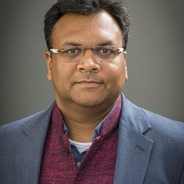
Khanjan Mehta
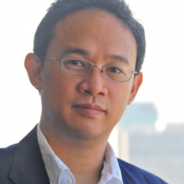
Elmer Soriano
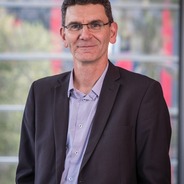
Jason Sargent
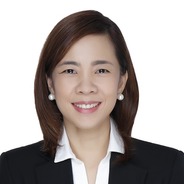
Elaine Macatangay Morales
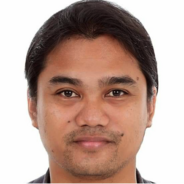
Reginald G. Ugaddan
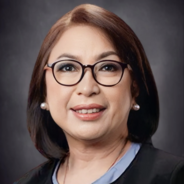
Theresita Atienza

Rosemary Phan
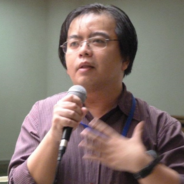
Adrian Roy Valdez
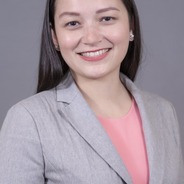
Georgina Hernandez-Yang
